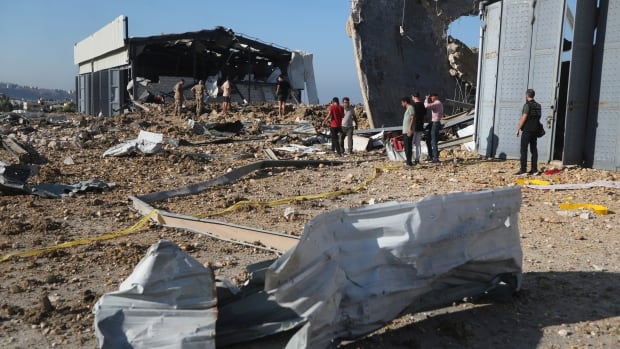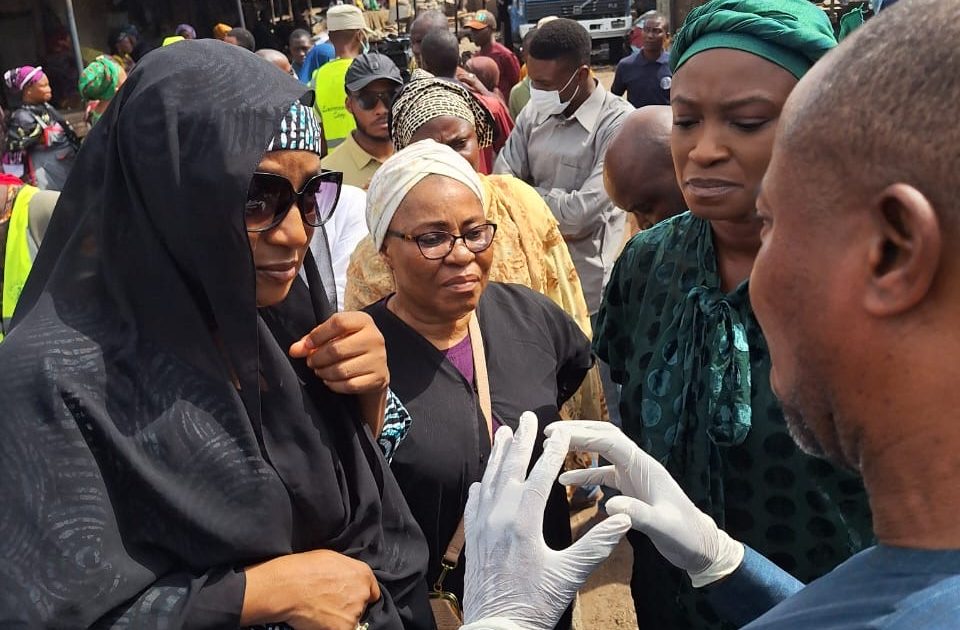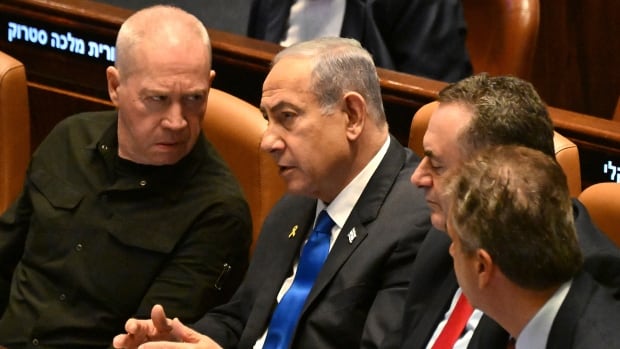Israel unleashed more airstrikes on Lebanon on Wednesday and Hezbollah militants fired salvoes of rockets into Israel, with the militant group claiming to have targeted the headquarters of the Mossad spy agency in Tel Aviv.
The Israeli military has mounted its heaviest airstrikes in a year of conflict this week, targeting Hezbollah leaders and hitting hundreds of sites deep inside Lebanon while Hezbollah has fired barrages of rockets into Israel.
There was no let up on Wednesday. Israel said its warplanes were currently carrying out extensive strikes in south Lebanon and the Bekaa Valley, a Hezbollah stronghold.
At least 15 people were killed and around 50 wounded in Israeli strikes across Lebanon on Wednesday on five different locations, according to a Reuters compilation of Lebanese health ministry statements.
Iran-backed Hezbollah has fired hundreds of missiles and rockets at Israel in recent days as months of conflict across the border with southern Lebanon has intensified sharply. Hezbollah said in a statement it had fired a missile on Wednesday morning targeting the Mossad headquarters “in support of our steadfast Palestinian people in the Gaza Strip … and in defence of Lebanon and its people.”
Hezbollah blames Israel for the assassination of several military commanders, as well as the explosions of communication devices belonging to its members last week.

The Israeli military said a single surface-to-surface missile was intercepted by air defence systems after it was detected crossing from Lebanon. Spokesman Nadav Shoshani said he could not confirm what Hezbollah’s target was when it fired the missile from a village in Lebanon.
“The result was a heavy missile, going towards Tel Aviv, towards civilian areas in Tel Aviv. The Mossad headquarters is not in that area,” he said.
Warning sirens sounded in Tel Aviv and elsewhere in central Israel but there were no reports of damage or casualties.
The strike was the first time since the beginning of the war that a Hezbollah missile had been sighted above Tel Aviv, generally considered a target with the potential to trigger a sharp escalation in Israeli action.
The Israeli military’s head of the northern command, Gen. On Gordin, said Israel had entered a new phase of its campaign and must be prepared for “manoeuvring and action,” the military said in a statement on Wednesday. The statement did not specify whether that could include a possible ground incursion into Lebanon.
Israel has shifted its focus to its northern border, striking Hezbollah targets in southern Lebanon. Andrew Chang breaks down the Iran-backed group’s power by examining its military capabilities and its political influence, as both sides inch closer towards a full-blown conflict.
Images supplied by Getty Images and The Canadian Press.
Heaviest airstrikes of the war
The Israeli military has been conducting its heaviest airstrikes of the war this week, targeting Hezbollah leaders and hitting hundreds of targets deep inside Lebanon.
On Tuesday, a strike in Beirut killed senior Hezbollah commander Ibrahim Qubaisi, who headed the group’s missile and rocket force.
A strike on the seaside town of Jiyyeh, about 75 kilometres north of the Israel-Lebanon border, left behind a massive hole and damaged cars and buildings.
He is one of several key figures who have been assassinated since fighting broke out between Israel and Iran-backed Hezbollah nearly a year ago in parallel with the Gaza war.
Israel has expanded the zones it has been striking since Tuesday night, with attacks for the first time on the beach resort town of Jiyyeh just south of Beirut and Maaysrah.
The strikes also took place in Bint Jbeil, Tebnin and Ain Qana in the south, the village of Joun in the Chouf district near the southern city of Sidon, and Maaysrah in northern Keserwan district.
On the other side of the border, authorities said the Galilee region of northern Israel was hit by heavy Hezbollah barrages on Wednesday morning.

In one salvo about 40 rockets were fired. Some were intercepted in mid-air, others struck open areas or penetrated air defences into populated areas, they said.
In the Israeli town of Safed, an assisted living facility was hit but no injuries were reported, the authorities said.
UN Security Council plans to meet
Israel’s offensive since Monday morning has killed 569 people, including 50 children, and wounded 1,835 in Lebanon, Health Minister Firass Abiad told Al Jazeera Mubasher TV.
A new offensive against Hezbollah has stoked fears that conflict between Israel and the militant Palestinian group Hamas in Gaza is widening and could destabilize the Middle East.
Political scientist Matthew Levitt helps explain Israel’s escalating conflict with Hezbollah, including the strategic reasons for Israel’s support of this second front and the political risks involved.
The UN Security Council said it would meet on Wednesday to discuss the conflict.
“Lebanon is at the brink. The people of Lebanon — the people of Israel — and the people of the world — cannot afford Lebanon to become another Gaza,” UN Secretary General Antonio Guterres said.
Half a million people are estimated to have been displaced in Lebanon, said Lebanon’s Foreign Minister Abdallah Bou Habib. He said Lebanon’s prime minister hoped to meet with U.S. officials over the next two days.
In Beirut, thousands of displaced people who fled from southern Lebanon were sheltering in schools and other buildings.
Meanwhile, Britain is moving some 700 troops to Cyprus to help its nationals leave Lebanon, as Prime Minister Keir Starmer warned that the escalation in fighting between Israel and Hezbollah was pushing the region toward the brink.
Canada and the U.S. have both encouraged their citizens to leave Lebanon while commercial methods of travel were still available. Foreign Minister Mélanie Joly last week estimated there were some 45,000 Canadian citizens still in Lebanon, about half of them officially registered with the Canadian government.
On Tuesday, Ottawa said two Canadians have died in Lebanon but offered few other details.








